- Kristi Powers
Last May, Reena Caprario, 54, thought her nagging pain in her left shoulder blade – which sometimes came through to her chest – was just acid reflux. But what seemed minor turned out to be a heart attack—one she nearly ignored.
For almost a week, Caprario dismissed the symptoms. Even when the pain worsened during a shopping trip with her daughter, she tried running up and down stairs at the mall to ease it. The pain went away but came back later that night along with a bad toothache. By the next morning, she was in the emergency room at AdventHealth Apopka, where Dr. Linus Wodi, AdventHealth Heart, Lung and Vascular Institute cardiologist, confirmed the shocking news: she had suffered a heart attack.
On dismissing symptoms...
Reena Caprario, AdventHealth patient and heart attack survivor
“It’s not uncommon for people to think their symptoms are GI-related, like acid reflux,” explained Wodi. “Especially for women, heart attacks can present subtly, with signs like back pain, fatigue, nausea, or cold sweats instead of classic chest pain.”

A plaque buildup in Caprario’s arteries caused her heart attack, which ruptured and blocked blood flow. Wodi likens it to a “log jamming up a dam and cutting off the waterflow.” Her treatment included an innovative procedure called Percutaneous Coronary Intervention (PCI), in which a colleague of Wodi, and fellow cardiologist, Dr. Brian Dublin, performed the next day. This innovative procedure uses a thin tube, or catheter, to guide a balloon over a thin wire to clear the blockage, and a stent is placed to keep the artery open.
“When I woke up, Dr. Dublin told my husband and I that he was surprised my heart fought so hard to keep me alive,” said Caprario. “At that point, I started to cry. I wasn’t ready to leave my family behind.”
Shortly after her procedure, Caprario began the 12-week Cardiac Rehab program at AdventHealth Waterman, where she learned how to strengthen her heart through monitored exercise and healthy lifestyle changes.
“You wear a heart monitor during workouts, so the team ensures you’re getting the right intensity,” she said. “I also learned how to make better choices, like cooking with avocado oil, only eating egg whites and looking at the amounts of cholesterol, sugar and carbs in all the foods I eat.”
Caprario’s journey highlights the importance of early action. According to the American Heart Association, heart disease has been the leading cause of death in the U.S. for the last 100 years, but simple steps can lower your risk.
Her physician encourages everyone to prioritize annual checkups with a primary care or family physician, to screen for heart disease, including tests for cholesterol, blood sugar and blood pressure.
“Knowing your risk factors is key,” Wodi said. “While factors like age and family history can’t be controlled, other risk factors can be managed like exercising regularly, managing hypertension and diabetes, maintaining a healthy weight and not smoking.”
Caprario, who has diabetes, is a former smoker and has a family history of heart disease, plans to get in better cardiovascular shape in 2025 by incorporating running into her exercise routine. She hopes her story inspires others to take charge of their health.
“Listen to your body,” she urged. “If something feels off, don’t wait. It’s a warning sign, go get it checked right away.”
“Time is muscle,” said Wodi. “In other words, your heart is a muscle and if someone is having a heart attack, the sooner blood flow is restored to the heart muscles by clearing the blocked artery the better it is for the patient.”
Serving more than 72,000 patients each year, including approximately 4,650 who undergo heart surgery, our cardiac care centers are supported by a team of more than 1,000 specially trained nurses and technicians. To find a doctor in your area and take an online heart risk assessment, click here.
Recent News
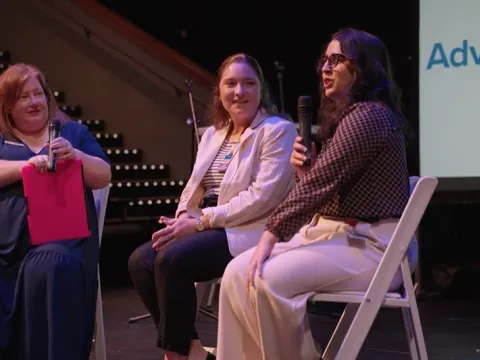
AdventHealth debuts first-of-its-kind Performer Health Program in Central Florida
AdventHealth is launching the Performer Health Program, a first-of-its-kind initiative in Central Florida focused on addressing the unique health needs of artists and performers.

AdventHealth named among U.S. News & World Report’s fifth annual 2026 Best Hospitals for Maternity Care
This marks the third year in a row AdventHealth Shawnee Mission has appeared on the U.S. News & World Report’s list of Best Hospitals for Maternity Care.

AdventHealth Waterman strengthens access to expert specialty care with expansion of Mount Dora medical plaza
Second floor buildout adds orthopedics, sports medicine, women’s health and heart care for Lake County
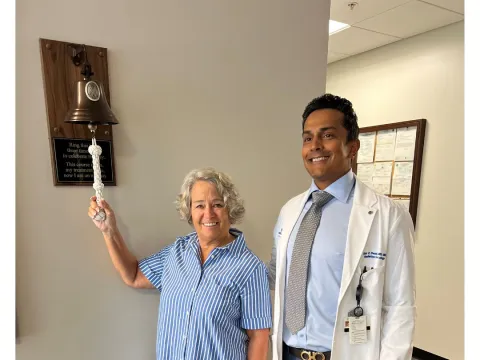
Expanding hope through innovation: AdventHealth advances cancer care across East Florida
Cancer touches nearly every family, and in Flagler, Lake and Volusia counties, the demand for timely, advanced care keeps rising. AdventHealth’s East Florida Division, which includes seven hospitals...

For two Hope Clinic patients, music spurs recovery
STROKESTRA heals stroke survivors in so many meaningful ways.
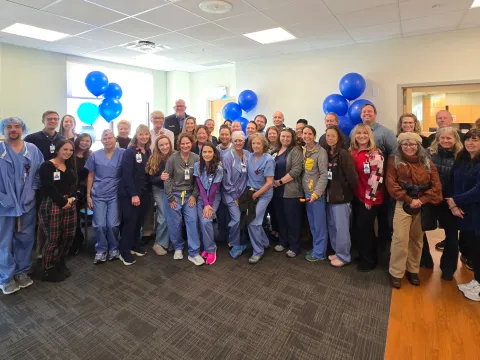
A new chapter begins: AdventHealth Avista opens its on-campus surgery center
This milestone marks a meaningful new chapter for a team whose history stretches back more than two decades.

AdventHealth Porter Performs Rare, Complex Robotic Kidney Cancer Surgery
AdventHealth Porter has reached an extraordinary milestone in surgical innovation, completing what is believed to be the first robotic left radical nephrectomy with inferior vena cava (IVC)...
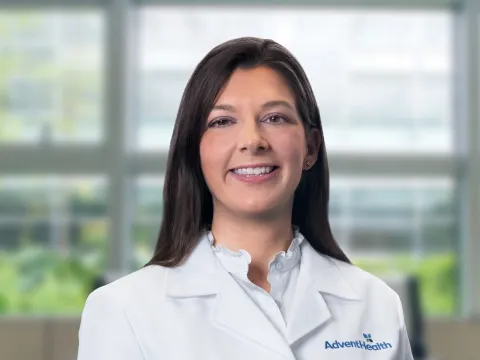
Amanda Robinson, DO, joins AdventHealth Medical Group Family Medicine, Internal Medicine & Pediatrics at Curtis Parkway
AdventHealth is pleased to announce that Amanda Robinson, DO, has joined AdventHealth Medical Group Family Medicine, Internal Medicine & Pediatrics at Curtis Parkway.

Helping the Helpers: Spotlight on AdventHealth Avista’s Director of Supply Chain, Mike Vos
For Mike Vos, Director of Supply Chain at AdventHealth Avista, caring for others isn’t just part of the job - it’s woven into his family story. With a mother who is a career nurse and now Director of...
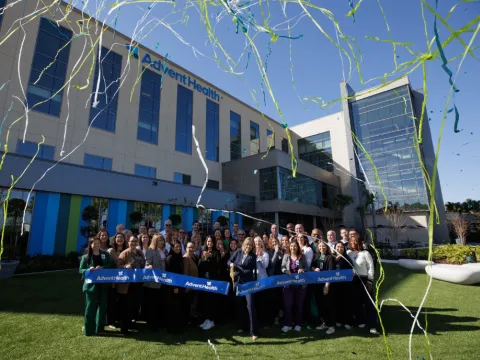
New hospital brings world-class, whole-person care to Minneola
AdventHealth Minneola will bring nationally recognized care close to home in South Lake County.
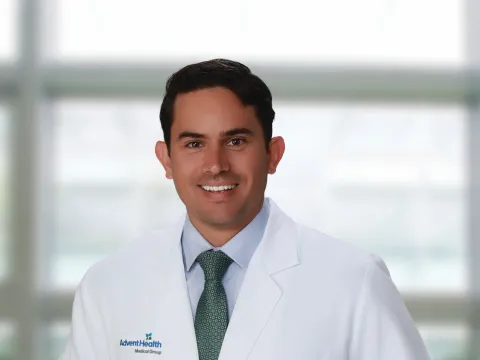
New surgeon expands local access to advanced colorectal care in Volusia County
Dr. Mark Heimberger joins AdventHealth as part of its continued investment in bringing minimally invasive and robotic colorectal treatment options to the region’s growing community.
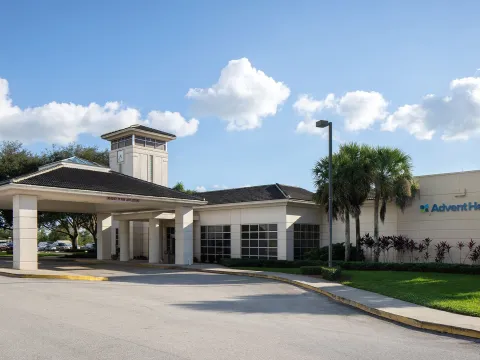
AdventHealth Lake Placid launches Low Dose Lung Screening CT program to help detect cancer early
AdventHealth Lake Placid has launched a new Low Dose Lung Screening CT program, bringing this life-saving service closer to home for people who live in and around Lake Placid.
